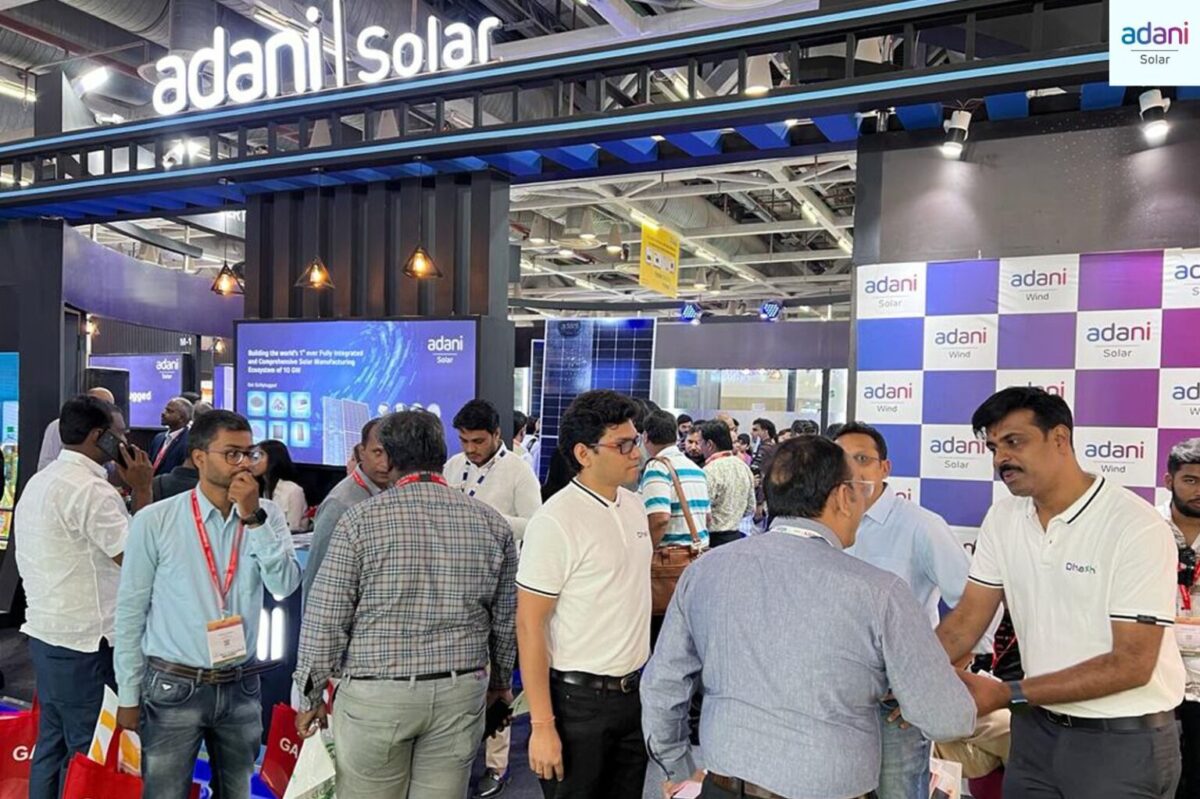From pv magazine India
The Renewable Energy India Expo 2023 – held last week in Greater Noida, Uttar Pradesh – was much bigger and more crowded than last year’s event. The organizers of the show told pv magazine that the event recorded 621 exhibitors and 43,182 trade visitors. The numbers exclude the Battery Show India, which was co-located with REI Expo 2023 for the first time in India and showcased over 200 brands to more than 8,000 visitors.
Most of the solar PV manufacturers showcased their offerings in the latest n-type technologies. It is now clear that n-type TOPCon is going to take the driver’s seat for the Indian PV manufacturing sector.
“Currently, n-type TOPCon modules cost INR 1-2/W more than mono PERC, but as the technology advances, their price is bound to come down. Also, TOPCon allows for BOS cost savings of up to 3.26% while offering up to 5% increase in power output,” Shubhra Mohanka, director at Gautam Solar, told pv magazine. “So, if you consider all these factors, the user is going to benefit from the use of TOPCon.”
All major module manufacturers in India are embracing the shift from p-type to n-type technology, with TOPCon emerging as their preferred choice.
“Many of the leading cell manufacturers in China have already started producing TOPCon cells,” said Vikas Arya, AVP-product strategy and marketing for solar at Jakson Group. “This development is expected to narrow the price gap between M10 p-type and TOPCon technologies by the end of 2023 or early 2024.”
Manufacturers of mono PERC solar cells that aim to meet TOPCon demand can modify or upgrade their current production lines to adapt to the rising number of busbars from 10 BB in p-type to 16 BB in TOPCon. According to Arya, some Chinese cell manufacturers offer TOPCon cells with a 10BB configuration, providing a cost-effective short-term solution for adapting existing 10BB mono PERC lines.
“It is essential to plan for the upgrade of machines from 10BB to 16BB in collaboration with machine suppliers, ensuring preparedness as the market transitions from mono PERC to TOPCon technology in 2024-25,” Arya said.
Popular content
A Pixon representative said that if Indian manufacturers do not upgrade their production lines to adopt advanced technologies such as TOPCon, they c0uld lose the opportunity to emerge as a viable alternative.
“After three months, more than 50% of the module production globally will adopt TOPCon. Going with the flow, Goldi Solar is expanding its TOPCon-ready PV module capacity to 4 GW with the addition of 1 GW of new production lines,” said Bharat Bhut, co-founder and director of Goldi Solar.
Most HJT manufacturers at the show said that HJT adoption could take a bit longer [than TOPCon] due to its more complex manufacturing process and higher costs.
“The efficiency of TOPCon modules is somewhere around 24.5%, whereas HJT offers 24.5% to 25%,” said Bhut. “There is only half a per cent difference in efficiency between the two technologies but the costs involved with HJT is very high.”
Adani, with a goal of achieving 10 GW of MG silica-to-PV module manufacturing capacity in India by 2027, presented its Elan Shine series of bifacial TOPCon modules, boasting efficiency of up to 22.4%. In addition to Adani, Waaree also featured TOPCon and HJT products at the event, such as a 715 Wp dual-glass bifacial HJT solar module and a 720 Wp TOPCon panel.
“The overall trend in Indian PV manufacturing has been shifting away from polycrystalline to monocrystalline solar modules, especially considering the fact that ALMM limits on minimum solar module efficiency mean even small project developers are shifting to monocrystalline modules. In monocrystalline module technologies, n-type TOPCon has seen a significant uptake recently with many significant players [including us] showcasing n-type TOPCon modules at REI 2023,” said Gautam Mohanka, CEO of Gautam Solar. “These modules provide greater efficiencies than mono PERC modules, which still remains the most preferred technology. But this will gradually change in the near future as many manufacturers are increasing their manufacturing capacity to increase the production of n-type TOPCon modules to meet the growing market demand.”
This content is protected by copyright and may not be reused. If you want to cooperate with us and would like to reuse some of our content, please contact: editors@pv-magazine.com.



By submitting this form you agree to pv magazine using your data for the purposes of publishing your comment.
Your personal data will only be disclosed or otherwise transmitted to third parties for the purposes of spam filtering or if this is necessary for technical maintenance of the website. Any other transfer to third parties will not take place unless this is justified on the basis of applicable data protection regulations or if pv magazine is legally obliged to do so.
You may revoke this consent at any time with effect for the future, in which case your personal data will be deleted immediately. Otherwise, your data will be deleted if pv magazine has processed your request or the purpose of data storage is fulfilled.
Further information on data privacy can be found in our Data Protection Policy.